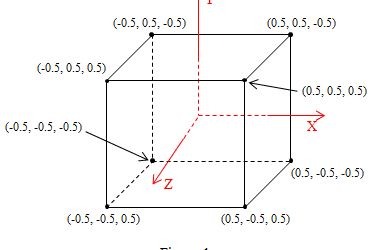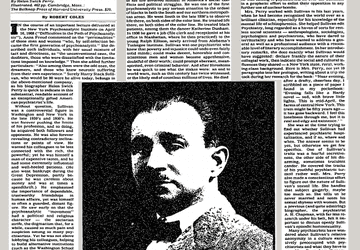Research in psychology and relationship science has consistently demonstrated that the emotional process of divorce mirrors the grieving patterns we experience after a death. Studies from the Journal of Divorce & Remarriage and work by researchers like Dr. Elisabeth Kübler-Ross have shown that divorced individuals move through similar stages of denial, anger, bargaining, depression, and acceptance that characterize bereavement. Neurological research using brain imaging has even revealed that the same regions activated during physical pain and loss of a loved one through death also light up when processing divorce. Your brain literally cannot distinguish between the death of a spouse and the death of a marriage.
This parallel makes profound sense when we consider what divorce represents: the death of a shared future, the loss of a family unit as you knew it, the end of dreams and plans built together, and often the disappearance of mutual friendships and extended family relationships. Unlike death, however, divorce carries additional complexities. The person you’re grieving often still exists in your life, especially if children are involved. There’s potential for ongoing conflict, repeated triggering of grief through continued contact, and the complicated feelings that arise when your former partner moves on with their life while you’re still processing the loss.
Understanding Your Grief as Valid and Necessary
The first step in moving forward involves recognizing that your grief is entirely valid, regardless of who initiated the divorce or how toxic the relationship might have become. Society often minimizes divorce grief, expecting people to “just move on” or “be grateful it’s over,” especially if the marriage was troubled. But your psyche doesn’t work that way. You’re grieving not just the person but the role they played, the identity you held as a married person, the security of partnership, and countless small rituals and shared experiences that shaped your daily life.
Allow yourself to feel the full weight of this loss without judgment. You might find yourself crying over seemingly insignificant triggers like seeing their favorite coffee mug or driving past a restaurant you frequented together. These moments aren’t setbacks; they’re your mind processing and releasing the thousands of neural pathways associated with your coupled life. Some days you’ll feel angry at your ex, other days at yourself, and sometimes at the universe for letting this happen. All of these feelings are part of the healing process.
The comparison to processing death becomes especially relevant when considering the timeline for healing. Just as society generally accepts that grieving a death takes at least a year to move through all the “firsts” without that person, divorce recovery follows a similar timeline. You need to experience your first birthday alone, your first holidays reconfigured, the first anniversary date that passes unmarked. Each of these milestones is a small death that needs to be acknowledged and mourned.
Reconstructing Your Identity
One of the most challenging aspects of post-divorce life involves reconstructing your identity outside the context of the marriage. For years or decades, you’ve thought of yourself as part of a unit. Your decisions were filtered through “we” rather than “I.” Your future plans included another person. Your daily routines were intertwined with someone else’s needs and preferences. Now you must rediscover or perhaps discover for the first time who you are as an individual.
This identity reconstruction often feels disorienting. You might stand in the grocery store, paralyzed by the simple question of what you actually want to eat when you’re not considering someone else’s preferences. You might realize you don’t know what kind of movies you genuinely enjoy or how you actually want to spend your weekends. These moments of confusion are not signs of weakness but important opportunities for self-discovery.
Start small with this identity work. Make choices that are entirely yours, even if they’re minor. Buy the bedsheets in the color your ex hated. Eat dinner at whatever time feels natural to you. Watch the shows they always complained about. These might seem like trivial acts, but they’re actually powerful assertions of your individual preferences and the beginning of reclaiming your autonomous self.
Consider revisiting interests and relationships that may have atrophied during your marriage. Did you stop playing music because your partner thought it was too noisy? Did friendships fade because your ex didn’t enjoy those people? Did career ambitions get shelved for the sake of family stability? While not everything from your past needs resurrection, exploring what was set aside can help you understand what parts of yourself you want to reclaim or develop anew.
Creating New Routines and Rituals
The dissolution of a marriage means the loss of countless small rituals that provided structure and meaning to daily life. Morning coffee together, evening check-ins about the day, weekend errands run in tandem, holiday traditions built over years. These routines, while sometimes taken for granted during marriage, actually provided significant psychological scaffolding for our sense of stability and belonging.
Creating new routines is essential for psychological recovery. Your brain craves predictability and pattern, especially during times of upheaval. Establish morning rituals that are entirely yours: perhaps meditation, journaling, a specific podcast you listen to while getting ready. Design evening routines that signal to your nervous system that you’re safe and the day is complete. This might involve preparing a special meal just for yourself, taking a bath, or having a phone call with a friend.
Weekends can be particularly challenging after divorce, especially if you don’t have children or when children are with their other parent. The unstructured time that once felt like freedom might now feel like a void. Build new weekend traditions: Saturday morning farmers market visits, Sunday afternoon hikes, Friday night movie traditions even if you’re alone. These new patterns slowly replace the neural pathways associated with your married routines.
Don’t underestimate the importance of creating new holiday traditions. The first year especially, consider doing something completely different from your married traditions. If you always spent Christmas at home, consider traveling. If Thanksgiving was always a huge production, maybe this year it’s Chinese takeout with chosen family. You’re not obligated to maintain traditions that no longer serve your new life structure.
Processing the Practical and Emotional Simultaneously
Unlike death, divorce requires you to grieve while also managing significant practical life changes. You’re processing emotional loss while potentially moving homes, dividing assets, establishing custody arrangements, and managing financial upheaval. This dual burden can feel overwhelming, and it’s important to recognize that your capacity for both emotional and practical processing is limited.
Create systems to manage the practical aspects so they don’t completely overwhelm your emotional bandwidth. This might mean hiring professionals like lawyers, financial advisors, or organizers if you can afford them, or enlisting friends and family to help with specific tasks. Set aside specific times for dealing with divorce-related administration rather than letting it bleed into all aspects of your day. You might designate Tuesday evenings for paperwork and financial planning, protecting other times for emotional processing or simply living your life.
Be prepared for practical tasks to trigger unexpected emotional responses. Dividing possessions isn’t just about who gets the couch; it’s about acknowledging the shared life those objects represent. Selling the family home isn’t just a real estate transaction; it’s closing a chapter of your life. Allow space for these feelings while still moving forward with necessary practical steps.
Dealing with the Social Fallout
Divorce often creates social upheaval that extends far beyond the couple themselves. Mutual friends may choose sides or feel uncomfortable maintaining relationships with both parties. In-laws who were like family may suddenly become strangers. Couple friends might unconsciously distance themselves, as if divorce were contagious or your new single status threatens the stability of their own relationships.
This social reconfiguration can feel like secondary losses piled on top of the primary loss of the marriage. It’s important to grieve these relationship changes while also being intentional about building new social connections. Some friendships will naturally fade, and that’s okay. Others might surprise you with their loyalty and support. Be direct with friends about what you need: whether that’s distraction, a listening ear, or practical help.
Consider joining support groups specifically for divorced individuals. There’s something powerful about being with others who understand the unique challenges of divorce without explanation. Online communities can be helpful, but in-person connections often provide more substantial support. Many communities offer divorce recovery workshops through churches, community centers, or therapy practices.
Be prepared for awkward social situations, especially in the first year. Running into your ex unexpectedly, navigating mutual friends’ events, explaining your changed status to acquaintances, all of these situations require emotional energy. Have strategies ready: a friend you can text for support, a phrase you use to politely exit conversations that become too painful, a plan for how you’ll handle seeing your ex at inevitable mutual gatherings.
Managing Contact with Your Ex
Unlike death, divorce often requires ongoing contact with the person you’re grieving, especially when children are involved. This continued interaction can repeatedly trigger grief and make moving forward feel impossible. Every text about logistics, every child exchange, every necessary communication can reopen emotional wounds.
Establish boundaries that protect your healing while meeting necessary obligations. This might mean communicating only through text or email rather than phone calls, using co-parenting apps that minimize direct contact, or designating specific times for dealing with ex-related matters. You’re not obligated to maintain friendship with your ex, despite what well-meaning people might suggest. Some divorced couples eventually develop genuine friendships, but this usually requires significant time and healing first.
If you have children together, the challenge intensifies. You must grieve the loss of your intact family while helping your children process their own grief and maintaining some form of functional relationship with your co-parent. This might be the hardest balancing act you ever perform. Remember that you can’t be an effective parent if you’re emotionally depleted. Taking care of your own grief and healing isn’t selfish; it’s necessary for your children’s wellbeing too.
For those without children, consider whether any contact with your ex serves your healing. Sometimes a period of complete no contact is necessary for psychological recovery. This isn’t immature or bitter; it’s a valid choice for protecting your emotional wellbeing while you rebuild your life.
Handling the Waves of Grief
Grief doesn’t follow a linear trajectory. You might feel like you’re making progress, then suddenly find yourself sobbing in your car because a particular song came on the radio. These grief waves are normal and will continue to occur, though generally with less frequency and intensity over time. Understanding the wave-like nature of grief helps you prepare for and cope with these moments.
Develop strategies for managing grief waves when they hit. This might include having a playlist of comforting music, a list of friends you can call, a collection of photos that make you smile, or physical activities that help discharge emotional energy. Some people find it helpful to schedule “grief time,” deliberately setting aside periods to feel and process their emotions rather than being ambushed by them.
Anniversary dates tend to trigger grief waves: your wedding anniversary, the date you separated, your ex’s birthday, holidays you spent together. Anticipate these dates and plan accordingly. You might want to schedule support or distracting activities. Some people create new rituals for these dates, like taking themselves on a special trip on what would have been their anniversary, transforming a potentially painful day into something self-affirming.
Resisting the Rebound Trap
The loneliness and identity confusion following divorce can make the prospect of a new relationship incredibly appealing. Someone new represents not just companionship but validation that you’re still desirable, a distraction from pain, and a fast track to feeling “normal” again. However, entering a new relationship before processing your divorce often means bringing unresolved grief and patterns into that new connection.
This doesn’t mean you need to be perfectly healed before dating again, as complete healing might take years. But it does mean being honest with yourself about your emotional availability and motivations. Are you seeking a relationship because you genuinely feel ready to build something new, or are you trying to avoid the discomfort of being alone? Are you attracted to this person for who they are, or for how they make you forget your pain?
When you do start dating, expect it to feel strange and potentially triggering. You’re learning to be intimate with someone new while carrying the muscle memory of your previous relationship. Comparison is inevitable but try to catch yourself when you’re measuring new people against your ex, whether favorably or unfavorably. Each person deserves to be seen for who they are, not as a reaction to who came before.
Be transparent with new partners about where you are in your divorce recovery. This doesn’t mean downloading your entire emotional process on a first date, but being honest about your situation helps establish appropriate expectations and boundaries. Someone worth building a relationship with will respect your need to move slowly and process your past while building something new.
Rediscovering joy and Meaning
As you move through the acute grief phase, space begins to open for new experiences of joy and meaning. These might feel guilty at first, as if being happy somehow betrays the significance of what you’ve lost. This survivor’s guilt is common in all grief processes. Remember that your capacity for joy doesn’t diminish the reality of your loss; it demonstrates your resilience and life force.
Joy often returns in small, unexpected moments before it becomes a sustained experience. You might find yourself genuinely laughing at something, then immediately feeling strange about it. You might have a wonderful day, then feel sad that you don’t have someone to share it with. These mixed emotions are part of the integration process. You’re learning to hold both loss and life simultaneously.
Actively cultivate experiences that bring you joy, even if they feel forced at first. Take that art class you always talked about. Plan that trip you never took because your ex wasn’t interested. Say yes to invitations even when you don’t feel like it. Joy is like a muscle that atrophies without use. The more you practice engaging with pleasurable experiences, the more natural it becomes.
Consider what meaning you want to make from this experience. While you wouldn’t have chosen divorce, you can choose how it shapes you. Some people discover strength they didn’t know they had. Others develop deeper empathy for human suffering. Many find that surviving divorce gives them courage to take other risks or make other changes they’d been avoiding. The meaning isn’t inherent in the experience; it’s something you actively create.
Building Your Support System
Recovery from divorce requires community. The myth of individual resilience, pulling yourself up by your bootstraps, doesn’t apply to grief recovery. Humans are social creatures who heal in connection with others. Building and maintaining a support system is crucial for moving forward after divorce.
Your support system should be multi-faceted. You need people who can offer practical help, like watching your kids or helping you move. You need emotional supporters who can listen without trying to fix. You need distraction friends who help you remember there’s life beyond divorce. You might need professional support from therapists or counselors who specialize in divorce recovery. Each type of support serves a different function in your healing.
Don’t be afraid to be specific about what you need from supporters. People often want to help but don’t know how. Instead of suffering in silence or accepting help that doesn’t actually help, be direct. Tell friends you need them to stop badmouthing your ex because it’s not helpful. Ask family to stop pushing you to date before you’re ready. Request specific practical help like meal preparation or childcare rather than vague offers of “whatever you need.”
Be prepared that some people will disappoint you during this time. Friends you thought would be supportive might disappear, while unexpected people might show up powerfully. Try not to take these disappointments personally. Some people are uncomfortable with grief, triggered by divorce, or simply don’t have the capacity to support you right now. Focus your energy on those who do show up rather than chasing those who don’t.
Reimagining Your Future
One of the most disorienting aspects of divorce is the loss of the future you had imagined. Plans you made together, dreams you shared, assumptions about how life would unfold, all of these evaporate with the marriage. This future-loss can feel as acute as any present-moment grief. You’re mourning something that never got to exist.
Rebuilding a vision for your future takes time and shouldn’t be rushed. In early grief, it’s enough to imagine getting through the next day or week. As healing progresses, you can begin to extend your vision further. What do you want your life to look like in a year? What experiences do you want to have in five years? What legacy do you want to create with your remaining decades?
This future-building process often involves grieving the limitations that divorce might impose. If you wanted more children, that might be complicated now. If you imagined retiring early with your spouse, that financial goal might be impossible now. Acknowledging these lost possibilities is part of creating a realistic but still hopeful vision for what comes next.
Remember that your new future might ultimately be richer than what you had planned. While you wouldn’t have chosen this path, it might lead to growth, experiences, and relationships that wouldn’t have been possible in your marriage. Many divorced individuals report eventually feeling grateful for the personal development that came from surviving divorce, even while wishing they hadn’t had to go through it.
The Ongoing Nature of Healing
Healing from divorce isn’t a destination you reach but an ongoing process of integration. Years later, you might still have moments of sadness about what was lost. Seeing your children’s other parent at graduations, weddings, and grandchildren’s births can trigger old grief. These ongoing touches of sadness don’t mean you haven’t healed; they mean you’re human and that the relationship mattered.
As time passes, the acute pain transforms into something more like wistfulness. The person who once caused you such pain becomes a character in your life story rather than an active wound. You might even develop compassion for both your younger self and your ex, understanding that you were both doing the best you could with the resources you had at the time.
Some people find it helpful to create rituals for marking their healing. This might be finalizing something symbolic on the anniversary of the divorce, like planting a tree or taking a meaningful trip. Others prefer to let the dates pass unmarked, a sign that divorce no longer defines their life. There’s no right way to acknowledge your journey, only what feels authentic to you.
The Phoenix Process
Moving on after divorce is ultimately a phoenix process. Something has to die completely, be reduced to ashes, before something new can emerge. This death and rebirth can’t be rushed or bypassed. Trying to skip the grief work only ensures it will surface later, often in more complicated ways.
Trust that you have the capacity to survive this transformation, even when it doesn’t feel that way. Millions of people have walked this path before you, finding their way from devastation to rebuilding to eventually thriving. Your journey will be unique, but you’re not alone in taking it.
Remember that “moving on” doesn’t mean forgetting or minimizing what the marriage meant. It means integrating the experience into your life story in a way that no longer causes acute pain. It means building a life that acknowledges the past while not being imprisoned by it. It means discovering that you are whole and complete as an individual, capable of creating a meaningful life regardless of your relationship status.
The research comparing divorce to death offers both validation and hope. Just as bereaved individuals eventually find ways to carry their grief while still engaging fully with life, divorced individuals can emerge from their loss with hard-won wisdom, unexpected strength, and the capacity for new love, whether that’s romantic love, deeper self-love, or an expanded love for life itself.



























0 Comments